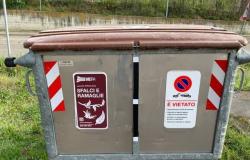Organized crime in Tuscany: Italian and foreign mafia.
Organized crime in Tuscany, published on half-yearly report of the anti-mafia investigative directorate Dia presented in Rome with Minister Piantedosi. The report, with the data relating to the various anti-mafia activity in the first 6 months of 2023“represents a scenario of Italian organized crime which confirms how mafia organisations, which have long begun a process of adaptation to the mutability of socio-economic contexts and to the advantageous penetration of business sectors, have implemented relational skills by replacing the use of violence , increasingly residual, but never completely repudiated, with silent infiltration strategies and corrupt actions”
The National Recovery and Resilience Plan (PNRR) “represents an important package of investments and reforms currently being implemented. Due to the high overall value of the financing involved, there is a risk that mafia organizations may express interest in these funds, increasing the phenomenon of infiltration into the legal economy”.
I am 681 anti-mafia checks were requested from the regional Prefectures in Tuscany for various projects. Tuscany is eighth in Italy, but second in central Italy behind Lazio which had 3,427 requests. Twelve companies were checked in the pipeline and 10 anti-mafia interdictions were issued against companies operating in the public sector.
In Italy in the first half of 2023, there were 11,890 requests to start PNRR anti-mafia investigations at a national level and 8 were concluded with a positive outcome, i.e. with the adoption of anti-mafia disqualification measures.
In Tuscany, we read, “the presence and operation of elements contiguous to Italian and foreign mafia criminal organizations.
With reference to mafia groups of Italian origin, the presence and operations in the regional territory concern in particular those Calabrian and Campaniancompared to the less rooted Sicilian cliques.
Ethnic crime, in addition to drug trafficking, is also dedicated to extortion and predatory crimes, especially by Albanians, Romanians, Chinese, Maghrebians and North Africans generally, who make use of the ‘manpower’ of subjects in need or irregular on the national territory.
The illicit activities of the Camorra groups found in recent periods are mainly concentrated in the sectors of extortion committed against subjects originating from Campania and Tuscany, in traffic management and illicit disposal of
waste, from drug trafficking to money laundering and reuse in real estate or business activities with
particular reference to the tourism-hotel sector.
The operations of the ‘Ndrangheta clans continue to be evident in the territory of Tuscany, as confirmed by the investigative activities carried out in past periods, mainly in the field of extortion, drug trafficking,
illicit disposal of waste and tax fraud”.
“As regards foreign associations, the ethnic groups most present in the Tuscan territory are confirmed as Romanian, Chinese and Albanian,
as well as groups of North Africans and Nigerians mainly engaged in drug trafficking and dealing.
In particular, Albanian criminal organizations demonstrate a high level of danger and a strong incidence in illegal activities, with
particular reference to drug trafficking: these are well-structured cliques supported by a strong solidarity component,
often strengthened internally by kinship ties.
In this context, the port of Livorno has been confirmed for years as an important hub for Albanian crime, to enter
drug loads in Italy. However, the airport in question is constantly subjected to strict controls by the police
who have carried out significant seizures of narcotics”.
“As underlined several times, foreign organizations, especially Albanian ones, which have a consolidated presence in central-northern Italy
leadership in international drug trafficking, do not disdain forming criminal alliances with members of Italian gangs”.
“Criminal exponents of Central and North African ethnicity, present in almost all the Tuscan provinces, are mainly engaged in drug dealing, as well as aiding and abetting prostitution and selling counterfeit goods.
In this regard, the various operations that have marked the Tuscan territory in this semester are significant”
“There Chinese-inspired crime continues to maintain a primary role in many economic activities, especially in the district
of the textile-clothing sector involving the provinces of Florence, Prato and Pistoia. The most widespread forms of illegality continue to be confirmed production and marketing of counterfeit goods or not compliant with community legislation, with the related aspects of tax and social security evasion, the aiding and abetting illegal immigration and the exploitation of
irregular workforce, as well as extortion and predatory crimes committed mainly against fellow countrymen”.
The report highlights that criminal organizations, which have long been committed to adapting to socio-economic changes and infiltrating the legal economy, have “implemented relational capabilities by replacing the use of violence, increasingly residual but never repudiated, with strategies of silent infiltration and corrupt actions”. “Today the mafias prefer to direct their attention to business-entrepreneurial areas, taking advantage of the huge capital accumulated through illicit activities”.



